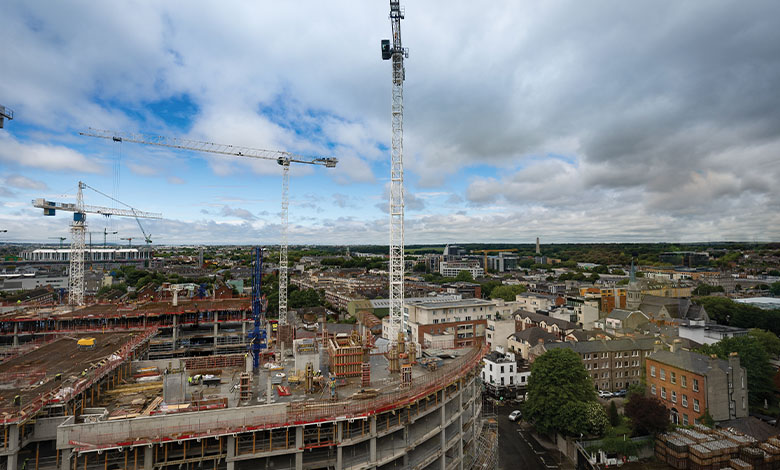
Hard and soft price increases driving construction cost uptick
19th February 2024
Housing Agency Projects and Procurement: Providing more services than ever before
19th February 2024Build 2024: What to expect

Published in the summer of 2022, the Build 2022 report is said to have played a key role in informing the stakeholders which comprise the Construction Sector Group (CSG) on skills requirements for the sector. eolas Magazine looks ahead to Build 2024 and what to expect from the upcoming publication.
Build 2024 is set to be published, according to the Department of Public Expenditure, NDP Delivery and Reform, in Q3 2024.
While it remains to be seen what the contents of Build 2024 will be, it is expected that the report will be shaped by the uptick in building commencements recorded in 2023, as well as challenges outlined by groups such as the ESRI (as acknowledged by Taoiseach Leo Varadkar TD) that the Government’s construction targets in Housing for All need to be significantly increased.
Employment and enterprise
Enabling the transition of the workforce of the construction industry will be an important objective being sought by construction industry stakeholders.
At the time of the publication of Build 2022, there were approximately 159,300 construction sector employees, representing 6 per cent of the State’s labour market. Of these workers, only 8 per cent were females.
With the likely uptick to come from government for increased housebuilding, one can assert that there will be increased focus on increasing the number of construction workers in Ireland.
The most recent figures on construction from the CSO show that, in Q3 2023, a 9.9 per cent decline was recorded in the volume of production, and that the volume of building and construction fell by 4.9 per cent on a quarterly basis.
Costs and inflation
At the end of 2023, the Parliamentary Budget Office projected that inflation will not be in line with the Government’s targets until 2025 at the earliest. Other government reports have demonstrated the level of disruption that has been caused to the construction sector in Ireland, with inflation having been on the rise since the lifting of Covid-19 restrictions, and then being accelerated following the disruption to fuel observed in the aftermath of the Russian invasion of Ukraine.
According to the Central Statistics Office, inflation in the State decreased in 2023, from 8.5 per cent recorded in February 2023, to 3.9 per cent, recorded in November 2023. In the fuel sector specifically, there was a 7 per cent increase in demand for wind energy which has led to a decline in demand for gas.
With inflation currently decreasing while construction costs continue to increase, Build 2024 will, construction stakeholders hope, allow the industry to chart a pathway to bring down construction costs and enable the Government to deliver on its Housing for All objectives.
Skills and capacity
Build 2024 is likely to continue the journey set out in its preceding publication to continue the expansion of apprenticeships to equip more workers with construction skills. The Government, citing a study from SOLAS, has asserted that there will be consistent increases in the number of workers utilising construction apprenticeships.
With the framework to remain similar, it is likely that the focus will be on expanding the number of people with skills, with he sector facing a high level of demand for workers, again due to the likely increase in construction to be placed by government as Housing for All adapts to an Ireland with an increasing population while renters and house buyers do not yet have adequate access to affordable housing.
In addition, modern methods of construction will likely have an enhanced focus. Modern methods of construction ensure that there is an enhanced level of knowledge among construction leaders about construction materials, scheduling, planning, sustainability, and BIM/data analysis.
With the Government facing higher demands to meet its climate targets in the Climate Action Plan. The EPA has warned that Ireland is not on track to meet its climate targets, and the residential and manufacturing sectors account for close to 20 per cent of the State’s emissions.






